

















Ireland’s global leadership in biopharma manufacturing is an excellent foundation for building a new leadership position in the development, manufacture, supply and adoption of the latest innovations in advanced therapies and vaccines.
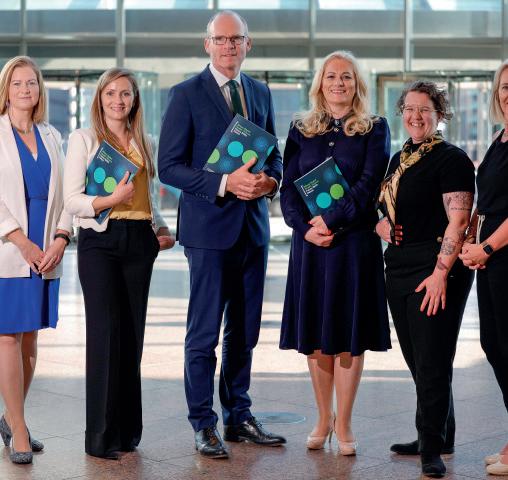
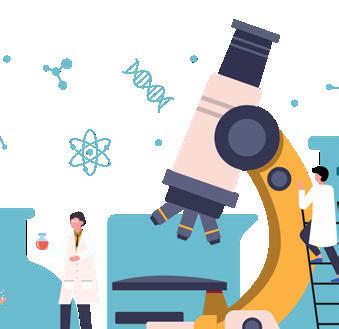

Over the last 20 years, Ireland has established itself as a global leader in biopharmaceutical manufacturing. By targeting the sector with flexible incentives and smart infrastructural investments — most notably, the establishment of the National Institute for Bioprocessing Research and Training (NIBRT) and the building of its pilot plant facility in 2011 — Ireland has been successful in attracting multinational companies to establish manufacturing operations across the country. Biopharma and the wider pharma sector, incorporating biopharma, contribute over €75 billion in national exports annually.1
Advanced therapy medicinal products (or ATMPs) are predicted to become the main driver of biopharma growth over the next decade. ATMPs are a biopharma category that comprises a range of highly innovative medicines that includes cell-based therapies, gene-based therapies, engineered regenerative tissues and oligonucleotide-based (e.g. RNA) vaccines and therapies.
ATMPs treat diseases at a fundamentally molecular level, with a wide diversity of mechanisms of action. ATMPs represent a potential step-change in the precise personalised nature of treatment and in the capacity to deliver a sustained disease response or even a cure.
The power of advanced therapies to offer substantial long-term benefits for patients is exemplified in the story of Emily Whitehead — the first paediatric patient in the world treated with the engineered autologous cell therapy CAR-T for acute lymphoid leukaemia in 2012 and, over 10 years later, is cancer-free and living a normal life.2
Advanced therapies: major opportunity for Ireland
Manufacturing these highly sophisticated therapies is complex. Efficient and safe scale-up of the processes to make cell-based and gene-based therapies, in particular, presents unique challenges. Building on our successful track record in monoclonal antibody manufacturing, existing infrastructure, experienced workforce and new investments, Ireland has a strong role to play in optimising and presenting solutions towards the cost-effective and safe manufacture of ATMPs.
Investment in advanced therapy research and training infrastructure
In June 2023, NIBRT completed an expansion of its training and research facility in Dublin. The expansion –which has been funded by a €21 million capital investment from IDA Ireland/the Government of Ireland – has created dedicated new space, including an extra seven laboratories and two new training suites, for training and research in advanced therapy and vaccine manufacturing. The new facility will also feature CONCEPT, a suite of cutting-edge equipment jointly funded with €6 million from Science Foundation Ireland and IDA Ireland.
NIBRT hopes that CONCEPT will serve as a ‘one-stop-shop’ where researchers from academia and industry can rapidly generate optimised cell lines and biological material for accelerated advanced therapy research and development.

References
1. https://www.idaireland.com/explore-your-sector/business-sectors/biopharma
2. https://journals.lww.com/oncology-times/fulltext/2022/03200/the_incredible_story_of_ emily_whitehead___car.1.aspx
Nine out of ten business leaders say Ireland will play key role in digital health
Technological University
(TU) Dublin’s MBA in Life Sciences Leadership — first in the country — marries business acumen and leadership skills with pharmaceutical expertise to help participants step up to senior roles in the sector.
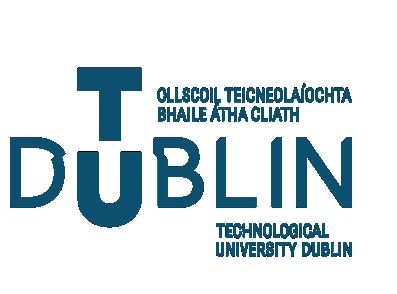
leadership and sustainability in life sciences, quality risk management and operational excellence. We also offer insight on current and future regulatory frameworks which are essential for the development of new medicines and therapies.”
50% scholarship for part-time female students. This is in partnership with the 30% Club.

Life sciences MBA to strengthen leadership MBA Programme Director Dr Ashley O’Donoghue, from the university’s Graduate Business School, says the motivation for designing the programme specifically for life sciences was to develop business and leadership capabilities that will build on discipline-specific expertise.
“It is about giving participants a holistic systems view of managing business — whether in strategy development, finance or managing people,” she says. “Organisations promote people to senior leadership levels; but when they get there, they also need to be effective in delivering outside their specialist areas. They need to be a leader; think strategically and critically; manage people and change; and implement strategy. That is what the MBA modules teach our participants.”
The course joins the Graduate Business School and School of Chemical and Biopharmaceutical Sciences — led by Professor Declan McCormack — to deliver complementary modules.
Professor McCormack says: “The Graduate Business School provides modules around general leadership and in finance, strategy, planning and development. We provide complementary modules in
The MBA Life Sciences Leadership is indicative of the need to provide the blend of business and technical skills that Ireland’s biopharmaceutical industries demand. He sees it as: “a fantastic enabler for our graduates to be able to position themselves in key leadership roles.”
Fostering socially responsible leaders Professor McCormack suggests MBA graduates should be well-positioned to undertake a level 10 industry-based PhD. The university has PhD graduates who are now global leaders in life sciences and, as alumni, contribute to the modules and engage in peer coaching.
The part-time MBA course is a two-year programme with semesters and intakes in January and September. It finishes with a consultancy project where students solve real-world issues within their own organisations, consolidating their learning from the different modules.
The course mission is to develop socially responsible leaders with additional themes around sustainability; equality; diversity and inclusion; and wellbeing. This should enable students to lead and transform their organisation with integrity. The University is also making ‘strident efforts’ to encourage greater female representation at the boardroom level in pharma companies with the TU Dublin Graduate Business School and Enterprise Academy’s
Among the first on the course is Siobhán Griffin, a Project Engineer with global pharmaceutical company Astellas. She works in areas of continuous improvement and digital transformation, dealing with cross-functional teams.

With a master’s in biopharmaceutical sciences and other qualifications, the MBA caught her eye as she looked for a leadership development programme. Having enrolled in January and already covered economics, financial reporting and marketing, she reveals: “In every module, I have taken away something that fits into my job and role.”
Griffin attends online lectures on Friday afternoons and sessions in Dublin every other weekend. She values the opportunity to network with participants from other pharmaceutical companies and hear from external speakers.
She says: “The exposure to the strategic element and leadership development is very important to me. I also see myself developing in terms of soft skills needed in working with cross-functional teams and getting insights into strategy development and implementation.”
With her employer contributing towards fees and offering study days, she believes the course will enable her and many others to develop and help the life sciences sector grow.
In every module, I have taken away something that fits into my job and role.Professor Declan McCormack Head of the School of Chemical and Biopharmaceutical Sciences, TU Dublin WRITTEN BY Mark Nicholls Matt Moran Director, BioPharmaChem Ireland


The biopharma sector has never been more buoyant — with exports of over €100 billion, capital investment flows remain extremely robust. Several big pharmaceutical companies have displayed their commitment to investing in the sector in Ireland.
Ireland has clearly retained its attractiveness as a hub for life sciences. There are several reasons for this: our rates of corporation tax are still competitive; our pool of experienced talent is strong; our location within the EU is more advantageous than ever — we are now the largest English-speaking nation within the EU enhancing our appeal to US investors, and our track record with all regulators is excellent.
What does the future hold for the biopharma sector?
There is no doubt that as it continues to grow, the focus on talent needs to be razor-sharp. Government needs to ensure that the third level sector is supported and can generate sufficient graduates to go on and work in the industry.
As digitisation embraces the sector, initiatives such as Pharma 5.0 need to be supported — a new skill set will be required too. Companies must be sustainable in how they operate, including reducing their carbon footprint. For instance, companies such as Eli Lilly and MSD have invested in site solar facilities.
Emerging subsectors and investment from big companies
As the sector continues on this growth path, new subsectors within
Research and development (R&D) in life sciences are creating new ways of treating disease and improving patient outcomes.
the industry continue to emerge. A strong Contract Development and Manufacturing (CDMO) sector now exists in the country. This has been driven in the main by the acquisition of older captive API facilities by leading industry contractors.
For example, Stirling Health recently announced the acquisition of the Novartis API facility in Cork. A greenfield investment by Chinese company WuXi can be added to the list of examples. In many ways, this represents a new dawn for the API (active pharma ingredients) sector in Ireland; and as supply chains become less resilient, it will be a major strength for the sector.
Dynamic cluster for Ireland’s life sciences
Finally, we should not forget about the Global Business Solutions (GBS) part of the sector with companies such as Pfizer, Eli Lilly and Novartis employing thousands. These operations were originally established as back-office operations — mainly in financial services — but have now diversified into a variety of areas including the management of clinical trials, patient information, supply chain, etc. They are a prime example of how Irish operations have been able to diversify, and local life sciences companies continue to show real signs of growth.
Eimear O’Leary PhD Director of Communications and Advocacy, IPHAWe are living through a golden era of medicine development. Advances in R&D are creating a greater understanding of disease and allowing a convergence of innovation across medicine platforms.
mRNA advances can be used to treat several diseases
The mRNA vaccine technology had been in production for over two decades. Covid-19 threw the spotlight on this platform technology which has exciting implications for the development of new vaccines and treatments. mRNA, which can teach cells how to make a protein that will trigger an immune response, can be used in immunotherapy to treat cancers and chronic infectious diseases such as HIV, hepatitis B and herpes. Crucially, as we learnt in recent years, it can also be developed and scaled rapidly, which is key for any future pandemics.
A ‘one-size-fits-all’ approach for patients is being replaced. For some, personalised medicines are available; they use an individual’s genetic profile to help practitioners make decisions regarding the diagnosis and treatment of a disease.
Such medicines include cell and gene therapies, which can involve a one-time treatment rather than stretching across a patient’s life — thereby not only saving lives but also reducing the cost associated with chronic illnesses.
The next wave of technological advances in medicines development will look towards artificial intelligence (AI) and machine learning. They hold the potential to enhance the speed and efficiency of medicines development by bringing lifesaving medicines to patients who need them most — and faster.
Ireland is home to companies pioneering the way forward in these innovations. Through collaboration with State, we must create the right structures to allow R&D to flourish and most importantly, for Irish patients to gain access to these lifesaving medicines.
The current commercial and manufacturing model for medicines does not cater for Advanced Therapeutic Medicinal Products (ATMPs) such as cell and gene therapies. Therefore, future technologies may suffer the same fate, which will result in poorer patient outcomes.
Similarly, proposed changes at the EU level may stagnate R&D and innovation within Europe as countries, such as the US and China, will continue to offer better investment incentives and intellectual property protection for medicines development. We need to reform the system, drive innovation in Ireland and ensure Irish patients have access to the newest and best medicines when available.
A ‘one-size-fits all’ approach for patients is being replaced.
As the sector continues on this growth path, new subsectors within the industry continue to emerge.
Dundalk-based biomanufacturing company embraces key protocols and state-of-the-art technology to ensure energy use is kept to a minimum while seeking to enhance employee wellbeing.
In a world increasingly conscious of the ecological and societal impacts of industry, delivering effective social and environmental leadership has become a strategic imperative for forward-thinking organisations. Such leadership not only resonates with and attracts high-calibre, sustainability-minded employees, it also fosters partnerships with like-minded organisations, enabling the development of a greener, more resilient supply chain.
As a global leader in Contract Research, Development and Manufacturing Organization (CRDMO), WuXi Biologics is firmly committed to sustainability across its operations. This commitment is notably demonstrated in their greenfield project in Dundalk, Ireland, announced in 2018.
The company was acutely conscious of its energy and resource footprint, with the ambition to create a state-of-the-art facility that excels in environmental stewardship with the long-term goal to significantly reduce carbon emissions by 2030 and to achieve net-zero GHG emissions across all operations by 2050.
Brendan McGrath, VP of Manufacturing and Ireland Site Head, says lean construction techniques helped minimise costs and waste with dedicated recycling streams for the various construction materials.

Once constructed, LED lights, motion control sensors and maximised use of glass to harness daylight further reduce energy consumption. The critical manufacturing process involves growing cells that require consistent food, heat and light with an uninterrupted electricity supply backed up by three emergency generators.
The plant now runs fully on renewable electricity, with plans to investigate the opportunity to generate energy from solar and wind.

The plant uses single-use bioreactors instead of stainless steel vessels and kilometres of pipework, which require extensive cleaning and sterilisation using water, steam, detergents and energy.
Single-use bioreactors contain all the elements for cell growth within. “Because it is a fully enclosed system, when we harvest the product from the single-use bag, we do not have to clean down the system,” says McGrath. Instead, the bag is removed, processed through a dedicated waste stream and incinerated to produce energy in a process that uses less energy and avoids cross-contamination risk.
WuXi Biologics Ireland’s range of ESG initiatives includes WeSocial, WeCare, WiSTEM, CSR and Sustainability committees, supporting gender diversity and equality in the workplace. “Employees want to work for companies aligned around their own ethics and beliefs, and they also look for flexibility,” explains McGrath. WeSocial organises events such as go-karting, quiz nights and horse riding to help people feel connected outside the work environment. WeCare supports employees with wellness talks, healthy eating weeks and other challenges in their daily lives.
WiSTEM, meanwhile, promotes women in science, technology, engineering and maths in schools to make jobs — such as microbiologists or process engineers — more visible to potential candidates.
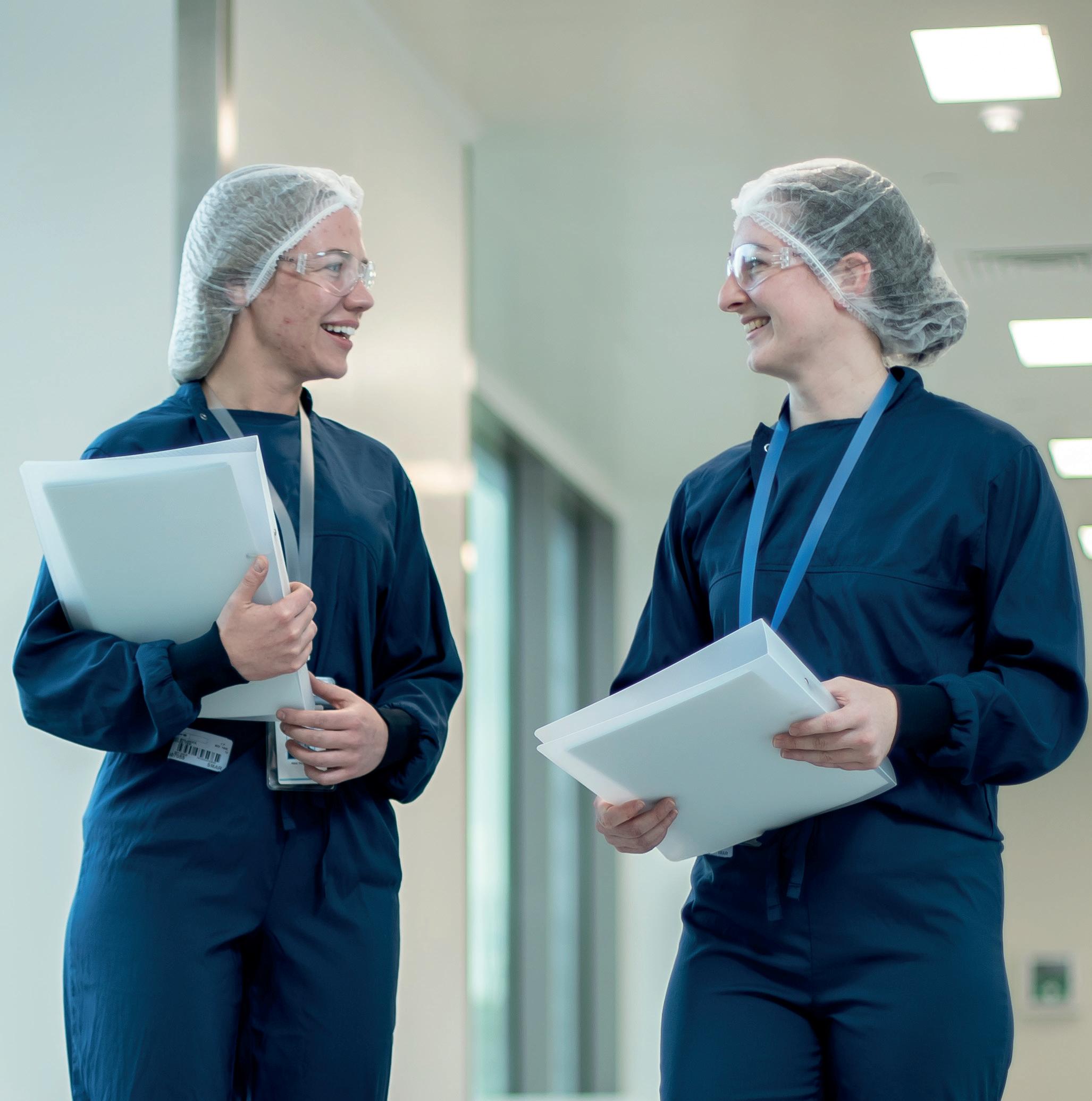
Using cutting-edge technology sustainably
The Sustainability Committee encourages colleagues to be sustainable in their broader lives such as with water conservation or recycling. They also promote cycling, and the company offers 23 electric car charging points.
“We are doing it because we want to do it and play our part,” says McGrath. “We are cognisant of high use of electricity and water as a manufacturer of medicine. Our technology is cutting-edge, but we want to make sure we efficiently use the limited resource of the planet and attract like-minded people.”
That green ethos also extends to the supply chain as WuXi Biologics works with companies with similar outlooks. Other eco-friendly initiatives include print protocols to reduce paper; repurposing coffee grounds into soap; cutting food waste in the canteen.
Located 45 minutes north of Dublin and one hour south of Belfast, local employment opportunities have cut down commuter journeys. “That has a positive impact on the environment, colleagues work/life balance and helps the overall sustainability journey,” concludes McGrath.
How to promote sustainability across biomanufacturing
Employees want to work for companies aligned around their own ethics and beliefs, and they also look for flexibility.

Senior leaders should start educating themselves by learning from others.
Knowing where to invest is key to unlocking the opportunities that digital transformation brings — but this is not always clear.
Adrian Hovenden Industrial Solutions Architect, Irish Manufacturing Research











The biopharmaceutical industry is living through a time of enhanced innovation in terms of digital transformation, pharma 4.0 and personalised medicines, particularly cell and gene therapies.









The evolution of biopharmaceutical manufacturing has accelerated with new technologies, drug modalities and personalised medicines. These advancements are helping to meet patient needs faster. However, with innovation comes complexity and challenges — including cybersecurity, supply chain issues, lack of regulatory guidance and knowledge. All of these culminate in delays in ‘speed to patient,’ whereby the average time to bring a drug from development to commercial manufacture is still several years.
Solution to biopharmaceutical manufacturing challenges





The solution lies in collaboration to enhance digitalisation and operational readiness. Enhanced data analytics have allowed the
optimisation of drug development — improving efficiency of the manufacturing process, decreasing lead times and ultimately leading to better treatment outcomes.
The global Good Manufacturing Practice (GMP) framework is embracing innovation and regulatory reform. One of the European Medicines Agency’s (EMA) strategic goals is to foster research and the uptake of innovative methods in the development of medicines. Regulators, industry and professional services companies are collaborating to remove silos, share knowledge and embrace innovation to make safe and effective novel medicines available to patients faster.
Delivering through innovation, knowledge and expertise



The industry can achieve this through enhanced collaboration and
knowledge-sharing. CAI are at the forefront of these new technologies and advanced therapies. We focus on all aspects of the product and facility life cycle — from programme management, commissioning, qualification, quality and regulatory processes, human performance and operational readiness. We utilise artificial intelligence (AI), machine learning (ML) and digital twinning technology to enhance, optimise and shorten the ‘speed to market’ for our clients, including those in the cell and gene therapy space.
Readiness and speed in medicines manufacture
To become operationally ready, leaders must begin working towards objectives early in the project — ideally at the beginning stages. This early involvement may surprise operations managers, but this effort is essential.
Ideally, we do the first assessment during the early design phase and update it multiple times as the facility design and product development progresses. This covers all functions and looks at the integration across an enterprise — inclusive of product, process and supply chain. We find the most vulnerable areas are understanding of the process/product, supply chain and organisational health. Early identification and action are key to removing future roadblocks — to get medicines to patients faster.
Holistic courses that develop both technical and business skill sets can help meet the talent requirements of Ireland’s expanding health and life science industry.
Professor Mark Tangney PhD MBA
Technology and work practices in companies producing medicines and medical technologies in Ireland are rapidly changing, and so are the skill sets required to thrive in this area, says Professor Mark Tangney, head of the iEd Hub at University College Cork.
“Nowadays, people working in this industry require more than just technical training. Developing transversal skills that help people to understand how businesses operate is just as important,” he says. “The reality of working in a modern company in this sector is that you need to be a well-rounded individual and be able to hit the ground running when you first join the organisation.”
Postgraduate courses to meet skills demands
Through the Irish Higher Education Authority’s Human Capital Initiative, a scheme that provides training for unmet industry skill needs, the iEd Hub coalition is looking to help close skills gaps in the rapidly evolving biopharmaceutical and medical devices sectors through a range of novel postgraduate courses.

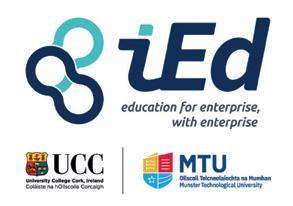
They’ve established partnerships with multiple companies, both large and small, to help develop courses that blend the specific technical, business and operational skills that organisations need today and in the future.
“It’s a co-curated approach with the companies so that they are involved
in both the design and delivery of these courses,” says Tangney. “Our lecturers span multiple different teaching disciplines, ranging from management and entrepreneurship to pharmacy to anatomy to engineering, to give a well-rounded educational experience to students.”
Well-rounded employees improve work efficiencies Ireland is becoming known internationally as a centre of excellence in the health and life science sector, meaning there are plenty of job and growth opportunities in this industry, says Tangney. “The career prospects in this field are better now than they ever were,” he adds.
Studying a course that complements technical skills with business savviness can give jobseekers a competitive advantage during the recruitment process and help them to bring instant value to the companies they choose to work in.
“At the end of the day, when people go into any new job, the technical part of the job gets reduced and people take on more operational and managerial tasks,” says Tangney.
“Here, at the iEd Hub, we take these realities on board. We train and equip people with the skills they need from day one, rather than leaving them to learn on the job. It’s a win-win for employees and companies.”

A blended technical and business skill set adds value to health and life science sector

Disruptive technologies are transforming the future of work. While many people are excited about the promise and potential, we need to engage with everyone to address concerns.

Emerging technology presents massive opportunities in the labour market. Artificial intelligence (AI) can amplify human capabilities, leading to increased efficiency and productivity, if appropriately deployed. It has the potential to work alongside humans collaboratively, amplifying human skills and enabling what is known as ‘augmented intelligence.’ As more jobs become automated, new roles will emerge that require AI expertise and other digital skills.
The consequences of disruptive technologies that could change livelihoods are still emerging. AI and robotics have the potential to automate repetitive and routine tasks, leading to job displacement in certain industries but can also allow humans to focus on more meaningful work.
As workplaces become increasingly digitalised, the need for highly skilled researchers specialising in data — with the cutting-edge ICT skills needed for the future — is rapidly increasing. However, we need more than just data scientists. We need highly skilled researchers and thinkers across disciplines, with transferable skills, that can work with stakeholders and are confident in combining their expertise with others, working together in an interdisciplinary manner.
At Science Foundation Ireland (SFI), we are focused on investing in excellent research and innovation across
our Higher Education Institutions to ensure we have the knowledge, talent and skills to support our society and economy, ensuring that Ireland is prepared to actively participate in the global development and appropriate deployment of these emerging technologies.

One example is the six SFI centres for Research Training (CRTs) that bring together 11 higher education institutes and 90 industry partners, providing training for 625 postgraduate students in Ireland in areas such as machine learning, digitally enhanced reality, data science, genomics, artificial intelligence and advanced networks for sustainable societies.

The increasing omnipresence of AI and technology creates a need for education and lifelong learning to equip individuals and society for these changes. We support this through projects funded by the SFI through our Discover Call and with the Curious Minds Programme for schools. We must also engage in discussion about the wider impact of new technologies on our society and address any ethical concerns.
Science Week provides a platform to have these discussions every year. The public has also been asked for their views; through topics raised by the public in submissions to Creating Our Future, we aim to further engage and encourage dialogue between the public and researchers on technological advancements in our society.
The increasing omnipresence of AI and technology creates a need for education and lifelong learning to equip individuals and society for these changes.
Demand for better research and development of gene-based therapies is leading to calls for greater collaboration between pharmaceutical companies and research centres. This requires a multidisciplinary approach.
WRITTEN BY James MartinAccording to pharmaceutical sector research, the global gene therapy market is expected to be valued at $15 billion by 2030. Research centres are seeking collaborative research projects with industry for cell and gene therapy delivery systems.
Gene therapy research and Bioengineering
AMBER (The SFI Centre for Advanced Materials and BioEngineering Research) is a world-leading centre in materials and bioengineering science. The Centre works with large and small businesses, and their research ranges from curiosity-driven research to more applied, close-to-the-market programmes.
Sally Ann Cryan is a Professor of Pharmaceutics and Research


Lead in the School of Pharmacy at Royal College of Surgeons Ireland (RSCI) — one of the higher education institutions that is part of AMBER.
Professor Cryan says: “We’ve worked with a whole range of
therapeutics — and the world is familiar with Covid-19 vaccines. Our two big areas are respiratory and regenerative medicine. There’s a really big emphasis on bioengineering and tissue engineering. We don’t just look at gene therapies; we also look at their integration into bigger tissue engineer structures. We work closely with clinical and surgical groups on the application of new, advanced therapies.”
Expanding capability to target various diseases
Caitriona O’Driscoll, Professor of Pharmaceutics at University College Cork, says: “There are exciting opportunities to target non-infectious diseases including chronic diseases like cancer and neurodegenerative diseases. Pharma companies are aware of the potential of these innovative medicines and are interested in collaboration in the area.”
AMBER laboratories have a track record in the synthesis of non-viral
materials and have the capacity to formulate and characterise them — and engage in pre-clinical testing.
AMBER’s collaboration with NIBRT (National Institute for Bioprocessing Research and Training) expands expertise to include scale-up and bioprocessing capability.

Working with industry to meet therapy needs
Professor Cryan adds that: “It’s a two-way street. We have scientists with experience in investigating both cell and gene therapies, and we want to move what we are developing closer to clinics. Sometimes, industry can be wonderful partners in that process.”
“On the other side of the coin, we are hearing from industry about an unmet need for better materials for delivery of gene-based therapeutics; and in parallel, a real unmet need for biomanufacturing. With joinedup, multidisciplinary research, we can address these unmet needs and deliver more advanced therapies.”
If you are interested in learning more, please fill out the short form here: forms.office.com/e/sSGp5kntdK
In the years ahead, lifelong learning and skills development is going to be vital for business success — and for individuals who seek career progression and personal growth.

The days of finishing your qualifications, finding a job and then never thinking about study again are well and truly over. That’s particularly true in life sciences, where fast-moving technology advances are transforming the sector. To keep up, workers will have to embrace lifelong learning.
In this brave new world of frontier technologies, companies will need people who have skills in coding, data analytics, augmented reality, AI, cloud computing and green tech. “Great strides in technology are changing the landscape for workforces and increasing the need for new skills and knowledge,” says Ann Ryan, Head of Business

Development at Innopharma Education, a higher education provider committed to helping individuals develop the skills they need to thrive in pharma, food and the medtech industries.

“Organisations and government are estimating that a 66% increase in green roles will be needed by 2030,” explains Ryan. “We must therefore create a robust talent pipeline that addresses skills shortages and meets industry demand. This is important for the Irish economy — which is a huge hub for pharma — because it ensures competitiveness and continued business investment.”
The individual benefits of lifelong learning Lifelong learning isn’t just essential for businesses. It’s also key to an individual’s personal development
and growth. “It enhances cognitive ability and critical thinking, so it’s good for health and wellbeing,” says Ryan. “Constant learning challenges biases, broadens the mind and teaches people skills such as resilience, leadership, and communication. Knowing you are always learning new things, and so future-proofing your career, can be a real positivity boost.”
Since 2010, Innopharma Education has helped more than 10,000 learners transform their career trajectories, with 75% of graduates successfully progressing after completion of a course. “Our learners can be all ages — although they tend to be between 30 and 55 — and from all backgrounds,” says Ryan. “They might already be in the industry and want to upskill; or they may want to break into the industry and need to reskill. We offer everything from Level 6 Higher Certificates to Master’s qualifications, and all learning is flexible and delivered as a blend of part-time and e-learning study. More and more people are realising that lifelong learning is manageable, exciting — and a gateway to opportunity.”
Ryan should know because she is a lifelong learner herself. “It’s brilliant to see people develop a love of lifelong learning,” she admits.
“Especially when they use it to achieve professional and personal goals, they never thought possible.”
How lifelong learning can help boost your career and your personal growth
A first-of-its-kind roadmap for digital health skills development was launched to ensure talent pipeline is equipped to innovate for new age in healthtech.
Ireland’s ecosystem boasts the world’s top medtech, biopharma and technology companies. Delivering industry-led training — through the Connected Health Skillnet, supported by the Irish Medtech Association and BioPharmaChem Ireland, with Skillnet Ireland — will help Ireland compete globally by staying ahead of the latest trends in technology and business.
with 13.5%, compared to 10% in the US and 8.3% in the UK.
To help our world-class ecosystem build on this, the Connected Health Skillnet will deliver niche training arising from the convergences of the sectors developing and deploying digital health solutions.
Jennifer McCormack Network Manager, Connected Health SkillnetThe digitalisation of healthcare has the potential to fundamentally alter how we diagnose, treat and care for people. Digital health is essential for a modern health system as it empowers patients with personalised health solutions; supports healthcare professionals and informs clinical decision-making; improves health systems by reducing costs while improving outcomes.
Ireland engaging in digital health initiatives
Ibec’s cross-sectoral campaign, led by the Irish Medtech Association with BioPharmaChem Ireland and Technology Ireland, ‘Where Digital Health Thrives’ has already identified 200 companies delivering digital health solutions in Ireland. Market segments include cybersecurity, remote monitoring, connected medtech, mobile health and more.
Nearly 9 out of 10 (87%) research respondents confirmed that their Irish operations will play a key role in their planned digital health activities — part of extensive research supported by HealthXL. We’re also entering this new era with a strong base as more digital health employees in Ireland previously held a role in the industry

The medtech, digital health and biopharma sectors stand out as major investors with 700+ companies operating across the country — employing 100,000 people directly and making a global impact with exports of over €120 billion.
The Irish digital health sector is uniquely focused on R&D as a key priority for upskilling, with growing demand in areas such as product design, coding and artificial intelligence. To compete and advance as digital health leaders, we must:
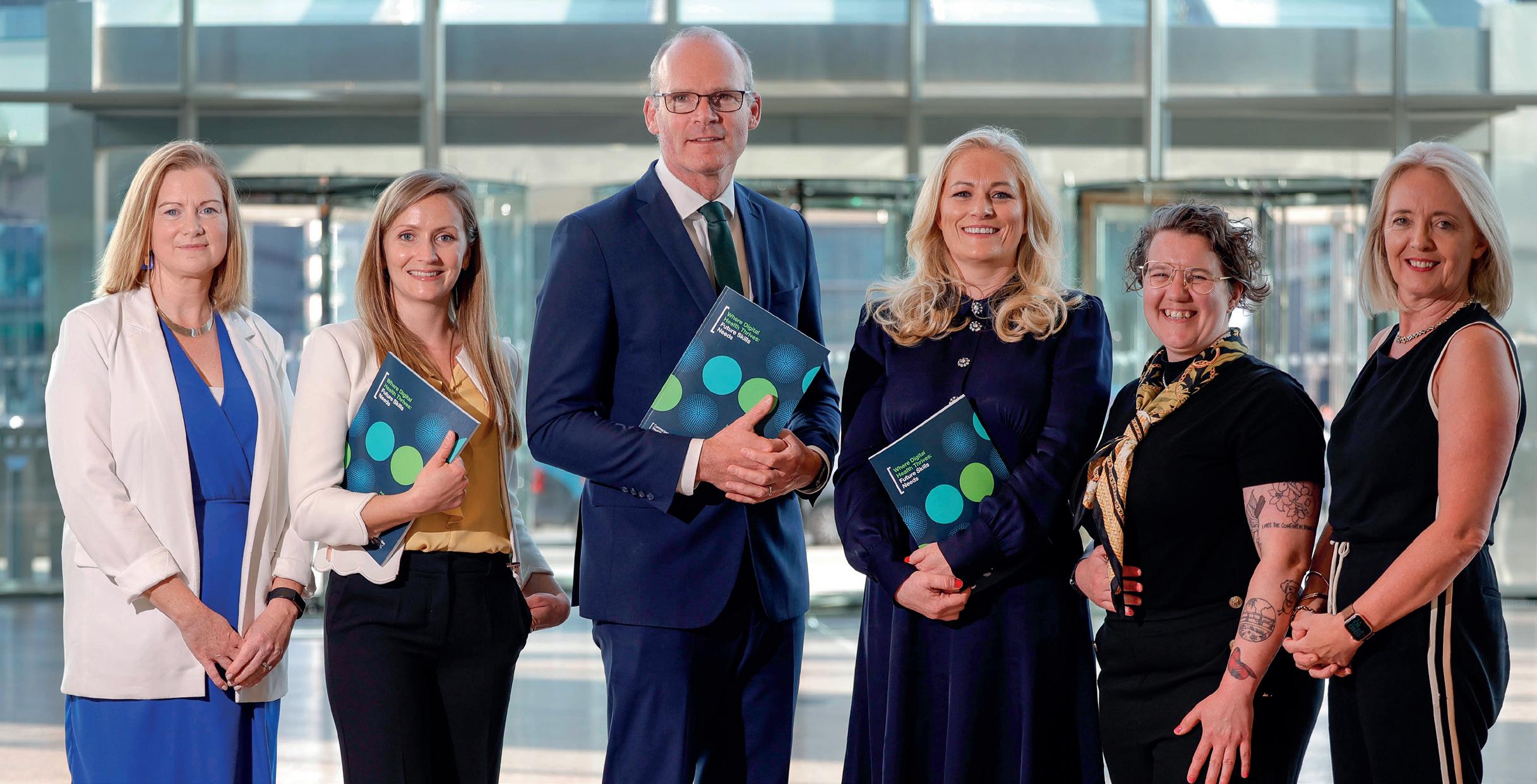
• Double down on essential R&D competencies
• Prepare for external markets
• Further digital health domain knowledge and establish a common language
• Define a career path for STEM graduates
• Deliver on-demand upskilling
• Enable partnerships in the short term between key sectors
• Establish a community of best practices across industry and other stakeholders
With the right business supports and policies, we will help drive innovation and investment in digital health.
Nearly 9 out of 10 (87%) research respondents confirmed that their Irish operations will play a key role in their planned digital health activities.
By harnessing the power of light-based technologies, research teams aim to revolutionise the life sciences sector and deliver innovative solutions across industries.
At Munster Technological University (MTU), a pioneering research entity merges biological science and photonics into biophotonics to drive transformative scientific exploration. This collaboration, funded by the Technological University Transformation Fund, combines the expertise of MTU’s Centre for Advanced Photonics and Process Analysis (CAPPA) and Shannon Applied Biotechnology Centre (Shannon ABC).



In-situ bacterial growth measurement utilising biophotonics

Accurately assessing bacterial growth is vital for various biological research projects. Traditional measurement methods can disrupt the bacteria’s environment and hinder their development.

To overcome this challenge, researchers employ light-based sensors for non-invasive and
frequent in-situ measurements in the incubator environment. By adopting this approach, they can assess bacterial growth without disturbing the organisms, while real-time updates are seamlessly transmitted to a dedicated app. This groundbreaking technology is the focus of a spin-out company within MTU.
Advancements in high-throughput screening
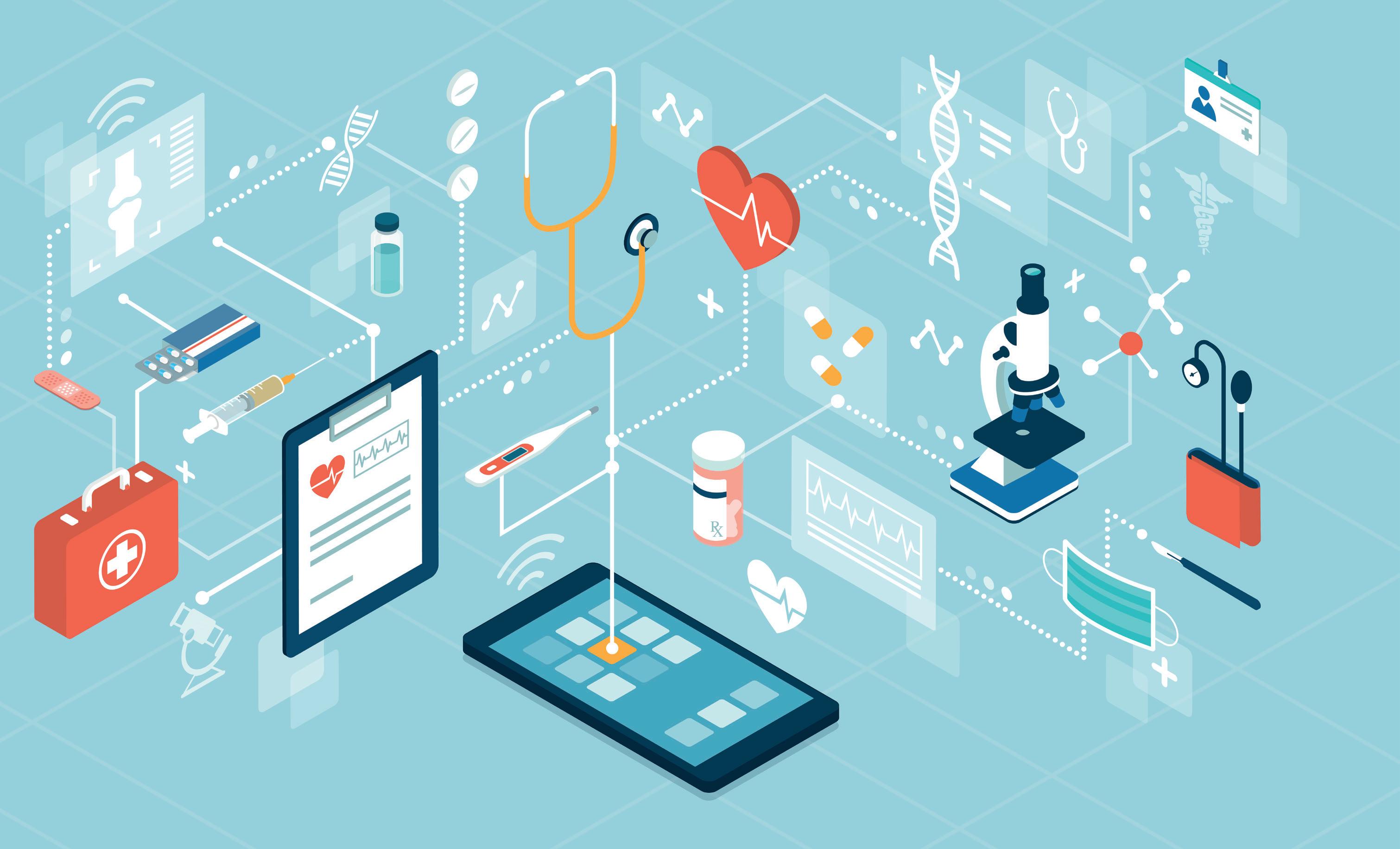

High-throughput screening (HTS) plays a crucial role in many scientific experiments involving a large sample size. Researchers are collaborating to pioneer an alternative to the standard 96-well plate reader system used in HTS. They have developed a novel method that combines light and multiple simultaneous measurements, significantly enhancing the speed and efficiency of HTS. This innovative approach,
which minimises analysis time and resources, has the potential to revolutionise scientific experiments and propel advancements across various disciplines.
Unleashing the potential of bioresources
Bioresources, such as willow tree bark, hold valuable compounds with significant applications in various industries. Biophotonics researchers at MTU, in partnership with other entities, are involved in the BioWill project. They aim to develop a willow tree biorefinery and explore the measurement of salicin — an anti-inflammatory compound found in willow bark.
By utilising light-based technologies and specific wavelength illumination, they seek to measure salicin content directly and more efficiently. This approach can save time, reduce costs and enable willow tree growers to maximise the value of their crops by accurately assessing salicin content.
MTU’s collaborative research efforts in biophotonics promise to revolutionise biological research and drive innovation across industries. With advancements in in-situ bacterial growth measurement, HTS and the exploration of bioresources, among the exciting developments — researchers at MTU, Shannon ABC and CAPPA are focused on how to support Irish companies through this exciting initiative.
Find out more at shannonabc.ie/ biophotonics/

Biophotonics research uses light-based technologies to drive innovation in the life sciences sectorDr Liam Lewis CAPPA Technology Gateway Manager
The digitalisation of healthcare has the potential to fundamentally alter how we diagnose, treat and care for people.
conceptualise rapid technology change. “It is not the biggest that wins the race, but the fastest,” he says. “Using the data and digital systems as a competitive advantage is vital to stay ahead as a leader.
“Tier one pharma companies are under a lot of pressure because customer, pricing and government expectations have changed, so they need to drive value to compete. One of the biggest challenges is the availability of data,” according to Paul Power, Head of Data Integration and Infrastructure, Life Sciences Manufacturing at Cognizant.
The company supports life sciences companies with end-to-end digital transformation solutions through a ‘connected by intent’ mindset, which evaluates the real-time data a business requires and ensures it is available and accessible from the outset.
Quicker accessibility to data means better decisions
Life sciences companies are urged to embrace digital transformation to help them increase the speed of manufacturing to achieve a competitive advantage, enabling accelerated medicine launch and ultimately improving patient health.
Through data availability improvements and better data usage, combined with smart manufacturing systems that ‘talk’ more effectively to one another, life sciences companies are seeing increased efficiencies and yield, accelerated production speeds and cost savings.

Manufacturing at professional services company Cognizant, outlines how digital transformation is accelerating product launch. Emerging technologies are supporting the ‘large pipeline’ of molecules developed by life sciences companies and enabling them to keep pace with industry expectations.

“Covid-19 and the accelerated launch of the vaccine has reset executive expectations,” says Staunton, adding that there are now similar expectations for other product launches with digital systems and data compressing the traditional timescales.
“There is also a deeper
understanding of the processes and equipment available from a smart manufacturing approach, where systems work together to specifically improve yield, capacity and batch release time.”
Digital technologies are also helping cut material and labour costs, with a sustainability bonus. “There is an energy focus with the data available across the platform,” says Staunton. “By dealing with water stewardship as well as solvent and plastic use, the data is facilitating a more naturepositive carbon zero approach.”
“The industry is using digital technology to promote system connectivity and utilising data advantages, to create the business insights that drive competitive advantage. This enables the industry to launch molecules that have never been made before and make more in-demand medicines faster,” states Staunton.


Making data meaningful and contextualised Staunton underlines the importance of organisations implementing Industry 4.0 initiatives, which
Henal Shah, who leads the company’s European Lab Centre of Excellence Practice within its Life Sciences Manufacturing Group, points to a shift away from client data centres to large volumes of instrument, lab, manufacturing and molecule data stored in the cloud. This, she adds, has cost benefits and offers quick access to contextualised data.

“We are seeing the industry shift towards cloud data storage, but what is important is how we leverage data to make competitive decisions and gain a competitive advantage in a secure manner.” Another issue has been organisations having disparate systems and getting them to talk to each other. “It is very important to ensure that you drive competitive advantage through quality, compliance, scalable infrastructure and system interconnectivity,” she says.
Less room for error raises stakeholder confidence
Smart labs are seeing widespread automation of routine tasks such as sample handling, preparation or testing; with AI helping to enable the automation of routine tasks and cut down on errors. This, in turn, enhances customer and regulatory confidence with monitoring, control and access to data in real time — with a clear audit trail and enhanced data integrity.
The life science industry is transforming its digital systems to meet new requirements to accelerate launch and reduce costs to ultimately improve the health of patients on a global scale.
To find out how Cognizant can help take your manufacturing into the new digital age, contact us at cognizant.com/ pharma manufacturing